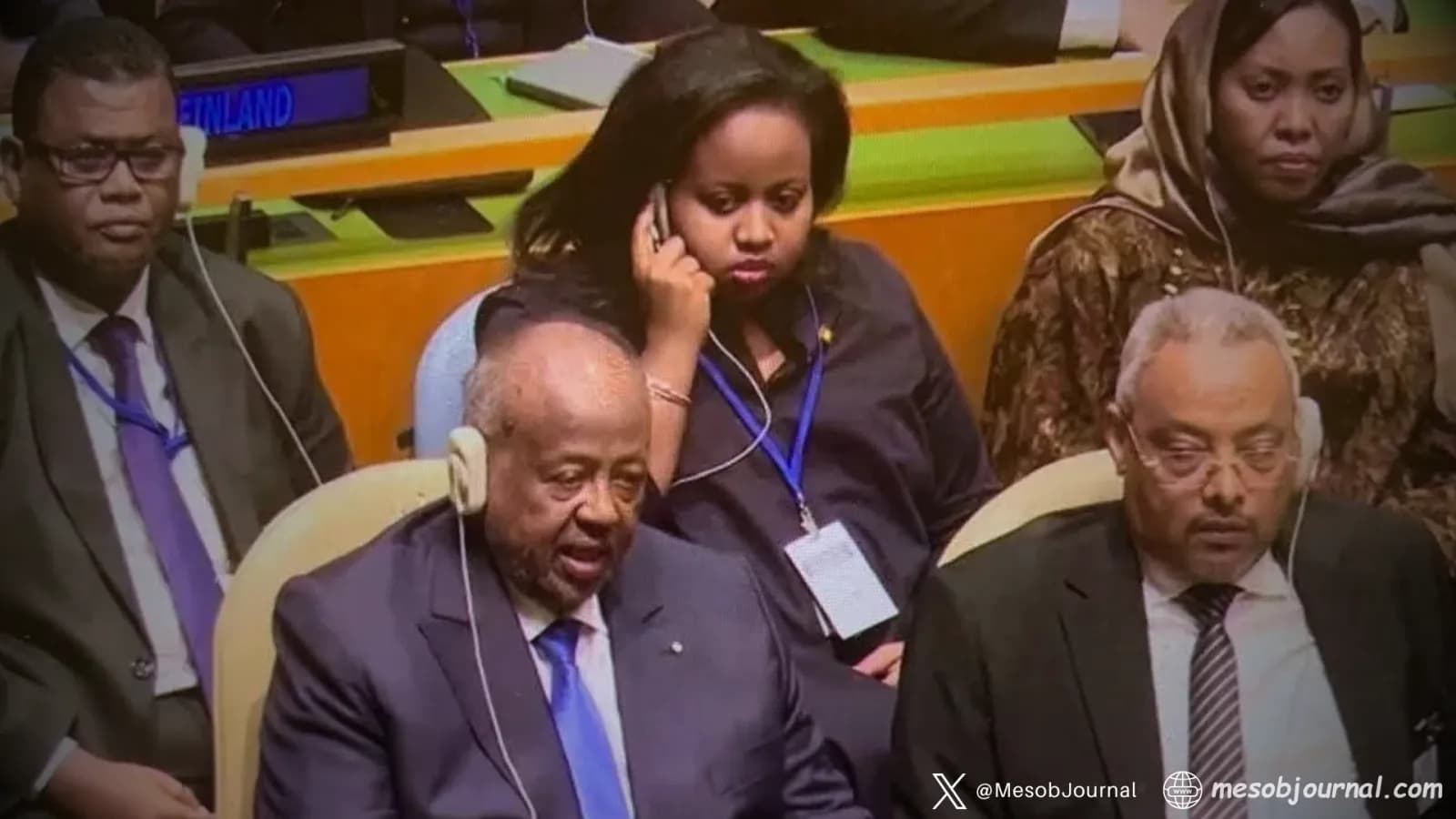Djibouti’s New "Constitutional" Trick: When “Reform” Is Just Another Word for Succession

Djibouti’s National Assembly met this morning to approve what it called a “constitutional revision” — a phrase that, in that country’s political lexicon, usually means one thing: Ismaïl Omar Guelleh is not done yet.
The draft law, numbered 2025-03/ADP, raises the presidential age limit from 75 to 85, and — for the first time — explicitly allows women to run for president. On paper, that sounds progressive. In practice, it’s pure choreography: a script meant to suggest modernization while tightening a dynasty’s grip.
Because in Djibouti, nothing truly changes unless it serves one family.
A Constitution Written in Pencil
Guelleh has been in power since 1999 — that’s 26 years of uninterrupted rule, cemented through serial amendments that have all followed the same pattern: remove a limit here, adjust an article there, stretch the definition of democracy just enough to satisfy Paris and Washington.
In 2010, term limits quietly disappeared.
Now in 2025, the age ceiling vanishes too.
What’s next? A hereditary clause?
Each revision is presented as a “response to modern realities.” But the only reality that matters is the political survival of a system built around Guelleh’s family, his in-laws, and a tight circle that controls the ports, telecoms, and security services.
Djibouti may host the highest density of foreign military bases per square kilometer in the world — American, French, Chinese, Japanese, Saudi, Italian, even a small EU mission — yet ordinary Djiboutians live in chronic unemployment, poor housing, and water insecurity.
So where does the money go?
A Luxury Class Built on Rent
The regime thrives on geopolitical rent. Every foreign flag that lands in Djibouti City pays a price — not to the people, but to the palace.
The U.S. base at Camp Lemonnier alone brings in more than $60 million a year in lease fees; the Chinese port facility adds another stream; the Emiratis fund commercial terminals. Still, the World Bank ranks Djibouti among the world’s most unequal economies.
In downtown Djibouti, ministers’ convoys speed past barefoot children and half-finished sewage drains. The elite — including the Guelleh clan — owns villas in France, Belgium, and the Gulf, while public sector wages stagnate.
Transparency International barely bothers to rank Djibouti anymore — its corruption data is considered incomplete due to lack of access.
“Gender Equality” — or Family Equality?
The amendment’s proudest clause declares that the presidency is now open to “any Djiboutian citizen, male or female.”
It sounds progressive, almost Scandinavian — until you look closer.
Because in Djibouti, there’s really only one woman whose eligibility matters to the system: Haïbado Ismaïl Omar Guelleh, the president’s daughter.
Her name doesn’t appear in the bill, of course. It doesn’t have to.
Every move in this regime is a family rehearsal — the slow, careful preparation of a dynasty that markets itself as a republic.
Haïbado has already been groomed through soft-power networks, diplomatic appearances, and business influence. The new “equality” clause functions like a pre-clearance stamp: if the patriarch can’t run forever, the constitution will make room for a successor who shares his bloodline.
So yes — Djibouti just discovered gender equality.
But only when it became politically useful to the ruling family.
The Mirage of Reform
Today’s constitutional revision pretends to open the presidency to women. But that’s a symbolic decoy. No woman in Djibouti can realistically mount a campaign in a system where the National Intelligence and Security Service answers directly to the president and opposition figures are routinely jailed or exiled.
The real purpose of the amendment lies in the age clause — it ensures Guelleh, 77, can legally run again in 2026.
He will be 85 by the end of that term.
The text could have been subtitled “Guelleh’s Golden Years Act.”
A Country Turned Into a Client State
To the outside world, Djibouti is a “strategic partner.”
To its people, it’s a client state trapped between superpowers who prefer stability over democracy — even if that stability is enforced through repression and staged elections.
Western diplomats often justify their silence with the phrase “regional security.” But security for whom? The foreign troops guarding sea lanes, or the Djiboutian families who can’t afford electricity after sunset?
The Illusion Can’t Last Forever
History has shown that regimes built on rent and repression eventually crumble under their own contradictions. Djibouti’s people have watched their leaders sell national sovereignty in slices — base by base, contract by contract — while their own dignity erodes.
No constitution, however rewritten, can mask that forever.
Guelleh’s legacy won’t be the military bases he hosted, but the generation he impoverished in exchange for them.
Related stories

Abiy Ahmed’s Strategic Isolation Is Now in Writing
What Addis Ababa has spent two years denying is now staring it in the face—on White House letterhead. The January 16 letter from Donald Trump to Abdel Fattah el-Sisi isn’t just about mediation. It’s a signal. Clear, deliberate, and consequential. Washington is aligning itself

When Maps Become Messages: Ethiopia’s Dangerous Normalization of Territorial Claims
There are moments in diplomacy when silence is louder than words. And there are moments when a picture—deliberately chosen, officially circulated—does more damage than a thousand speeches. The map displayed this week in a video released by Ethiopia’s Prime Minister’s Office belon

Red Sea Doctrine: Littoral States Shut the Door on Expansionism
Cairo was more than a ceremonial trip. When Eritrean President Isaias Afwerki stood beside President Abdel Fattah el-Sisi this November, the message wasn’t about museums or optics — it was a map of how the Red Sea will now be governed. No slogans. No ambiguity. A littoral doctrin

